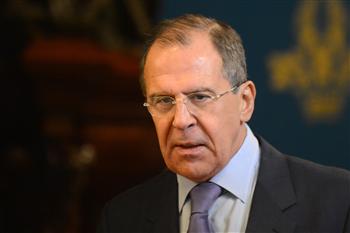CAIRO: Judges threatened to boycott supervising the elections and vote counting after a group was attacked by military police in Sharqiya on Thursday night.
"We want an official written apology to the judges who were attacked," Councilor Mahmoud El-Sherif, secretary general and spokesperson of the Judges’ Club, told Daily News Egypt on Friday.
He called upon the Supreme Electoral Commission (SEC) to set a clear plan for organizing the elections, and said security forces had to perform their role in securing the process and protecting judges, not attack them.
A number of judges said that instead of threatening to boycott elections, they may resign altogether to save face.
Run-offs are scheduled to take place on Dec.21-22 for phase two of parliamentary elections, while the third round of the last nine governorates is slated for Jan 3-4.
After the second round of elections ended on Thursday, military and police forces reportedly attacked judges with electric rods in front of the general stations allocated for vote counting in several constituencies.
El-Sherif explained that thousands of people surrounded the general stations in the governorates of Sharqiya and Beheira as well as in Imababa and Haram districts in Giza governorate, obstructing the judges from entering to start the vote counting process.
"Military and police forces started cracking down on everyone outside the general committees, including the judges, in a bid to disperse the crowd," he said.
"Military police didn’t understand or respond when judges tried to explain their identity, and they continued to beat everyone in sight," he added.
El-Sherif stressed that security forces did not intend to attack the judges, adding that there should have been high-ranking officers organizing the forces and directing them to protect the judges, not attack them.
"Even after the revolution, preserving the dignity of Egyptian citizens is unheard of," he said.
The Judges Club received over 300 complaints of attacks on judges on Thursday night, according to El-Sherif.
However, he said that despite the attack, judges went through with the vote counting process in these constituencies, threatening to boycott the upcoming round if not action is taken.
Preliminary results
Preliminary results of the second round were similar to those of the first, giving the lead to Islamist parties.
The Muslim Brotherhood’s (MB) political arm, the Freedom and Justice Party (FJP), came in first place in most of the nine governorates, while the Salafi Al-Nour Party came in second, followed by the more liberal Egyptian Bloc.
"The preliminary results show that the number of votes we garnered won’t be less than the first round. It might even be more in some areas," Yousry Hammad, spokesperson of Al-Nour party, told DNE.
In the first round of elections, the FJP and Al-Nour raked in around 70 percent of the votes, with the FJP list receiving 3,565,092 out of 9.7 million valid votes, while Al-Nour snatched 2,372,713, in addition to the independent seats received by each party.
The liberal Egyptian Bloc came in third place, winning 1,371,713 votes, or 13.4 percent.
The second round kicked off on Dec.14 to include: Giza, Beni Suef, Menufiya, Sharqiya, Ismailia, Suez, Beheira, Sohag and Aswan.
Hammad said that Al-Nour garnered wide support in Suez and Beheira governorates, adding that only around 50 percent of the ballots had been counted at press time.
On the other hand, the Egyptian Bloc said it came in second place, following the FJP, in Upper Egypt. In other areas it said it came in third place.
Following the success of Islamists in the first round, they were accused of planning to implement strict religious rules and policies that would violate personal freedoms and harm the tourism sector, once they dominate the People’s Assembly.
"These were false accusations and claims that failed to sway the people’s vote in the second round of elections," said FJP leader Ahmed Abou Baraka.
Liberal parties accused their Islamist counterparts of launching a campaign against them, accusing them of being "atheists."
Political analyst Hassan Nafaa told DNE he expected the FJP to maintain their leading position, while the Salafis would garner less seats and the liberal parties as whole would win more.
"This could come true in the final results, which haven’t been announced yet," he said.
"We predicted that the results in the second round of elections wouldn’t be radically different from the first one," he added.
Al-Wafd Party, which came in fourth place in the first round, garnering 690,771 votes, was able to snatch more in the round two, beating the Egyptian Bloc in some areas, preliminary results showed.
In Sharqiya, Al-Wafd appeared to be in third place following the FJP and Al-Nour. In Ismailia it battled the Egyptian Bloc for third place, according to member of the Free Egyptians’ political bureau, Mohamed Hamed.
The Free Egyptian’s Party is spearheading the Egyptian Bloc.
Margaret Aazer, secretary general of Al-Wafd, said the party succeeded in garnering more support in the second round by focusing on campaigning and asserting its liberal views and identity.
"We held press conferences and rallies and got closer to people on the streets, unlike the first round where we were so preoccupied with the country’s problems that we neglected campaigning," she said.
Independent candidates
In the third constituency in Giza, Amr El-Chobaky, political analyst and president of the Alternatives Forum, was slightly ahead of FJP candidate Amr Darrag in the race for the professional’s seat. Still, a run-off might be held between the two candidates.
In Giza’s fourth constituency, culture icon and founder of the independent cultural center El-Sawy Culture Wheel, Mohamed El-Sawy won against Islam Lofty, co-founder of the El-Tayar El-Masry Party, which splintered off from the MB after the uprising. El-Sawy was backed by the FJP.


